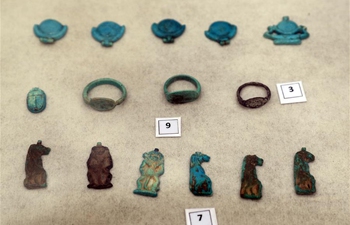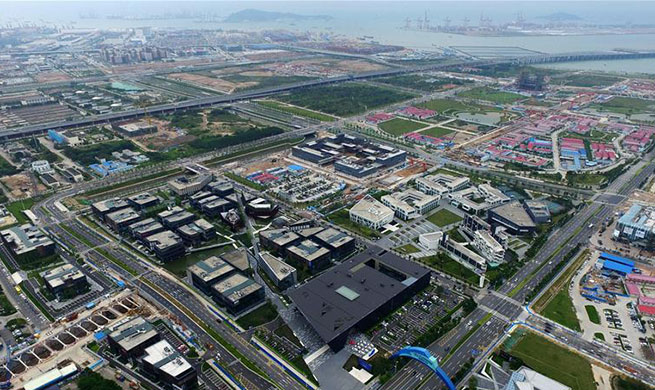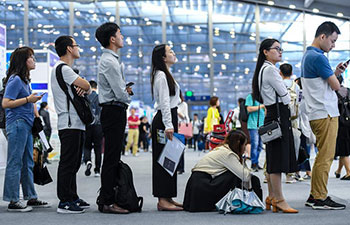BEIJING, April 14 (Xinhua) -- A hospital in Beijing is pioneering the use of virtual reality (VR) technology to help train doctors to perform heart surgeries.
Researchers from Fuwai Hospital, under the Chinese Academy of Medical Sciences, have built a 3D heart model with typical CT images of heart disease patients. They routed the 3D model to a head-mounted display through VR software developed by a Hangzhou company.
Users equipped with a headset and a motion controller will not only get a 360-degree view of the anatomic structure of a patient's heart but can also interact with some virtual features.
Last year, 18 doctors from the hospital participated in a 10-month VR training program. According to a questionnaire, all of them "very much agreed" and "mostly agreed" that VR training had a positive impact, and no one reported any discomfort with using VR.
"The VR images look more vivid than pictures on paper or on computers," said 33-year-old participant Zhong Zhaoji. "The system enabled me to observe all parts, experience virtual cutting, and even move around in the virtual heart."
The traditional training process cannot offer such an immersive environment.
A doctor starts learning how to perform surgery from a school textbook. After a clinical practice period in a hospital, the trainee doctor can observe surgeries by working as a surgeon's second assistant.
It usually takes a trainee doctor five to ten years before he or she can perform surgery.
Fan Hongguang, a cardiac surgeon and head of the training program, said that to have a clear understanding of a heart's structure and its relationship with other organs was not easy but very important to a surgery. Some deformities in severe congenital heart diseases often confuse new surgeons.
He believes the VR system can help young doctors master heart surgery faster.
Currently, the VR system is just used for training, but researchers believe in the future it will also help senior surgeons in their daily operations.
"The heart is a complex three-dimensional organ, but previously, doctors only used two-dimensional medical images to learn about a patient's heart. They were unable to 'look around' the organ, so sometimes they had to use imagination before the surgery -- but people's imagination is limited," Fan said.
If the VR system can be applied in every surgery with patients' CT images, surgeons will be more confident before making an incision, and it will help reduce errors and improve efficiency, Fan said.
Next, researchers and experts will further enhance the technology, enrich the training courses and establish a VR-assisted surgery platform.
Fuwai Hospital is China's leading hospital specializing in cardiovascular diseases, and performs over 10,000 surgeries every year.

















